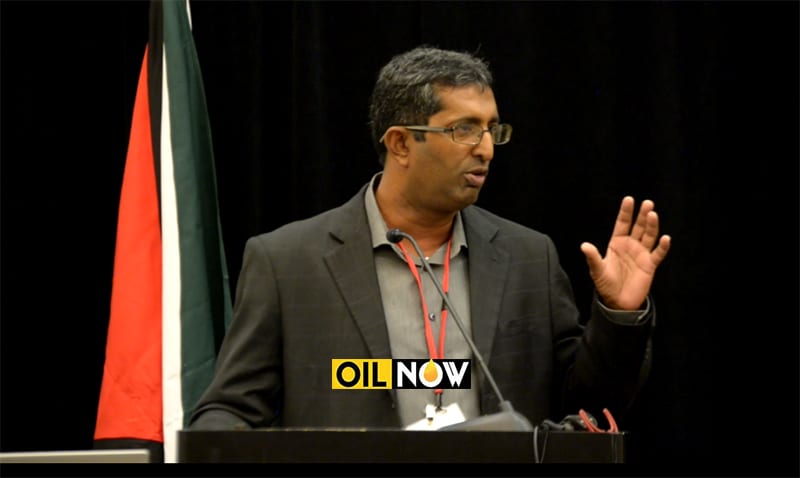Trinidadian Economist, Dr. Roger Hosein, is urging Guyana not to use oil revenue to create “make-work jobs” especially at elections time when politicians look to induce voters in order to secure their support. The act of the State intervening in the labour market can have potentially disastrous effects he said, serving to starve the private sector of workers and affecting key sectors in the economy.
“Avoid at all cost, make-work jobs which is very appealing just before elections. So you give 20,000 people make-work jobs and they vote for you easily. These increase the level of under-employment in the economy,” he pointed out.
Elections in Guyana is due in 2020, the same year oil production is set to begin.
Dr. Hosein said Trinidad and Tobago intervened in the labour market by creating make-work jobs, “where we give people work to cut the signs on the road and paint the stones…and they started work 8 o’ clock and they finished quarter to eight and we just squeezed the private sector for workers.”
That plan, he said, backfired since in the process of changing the resource allocation by the State, the work ethic in the twin island republic was also compromised. “So we operated within our production capabilities, and I worked it out; we lost 1.84 billion dollars a year in welfare losses and we have been running this programme for 15 years,” he said.
Trinidad squandered US$77B in oil revenue between 1999 & 2016
Dr. Hosein said “making work” to create employment, especially in a country with a small labour force such as Guyana, ultimately affects production output, which is a key element of the dreaded Dutch Disease.
Dr. Hosein was at the time speaking at a two-day conference on the transformational economy, perspectives and opportunities for Guyana’s private sector, held this week at the Marriott Hotel in the country’s capital, Georgetown.
The conference was organized by the Caribbean-Central American Action (CCAA) group and the Inter-American Development Bank.



